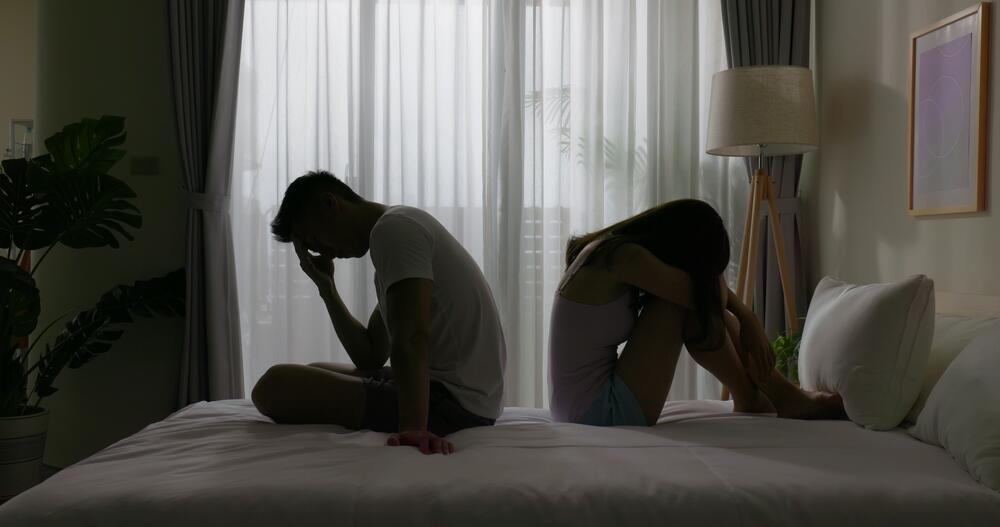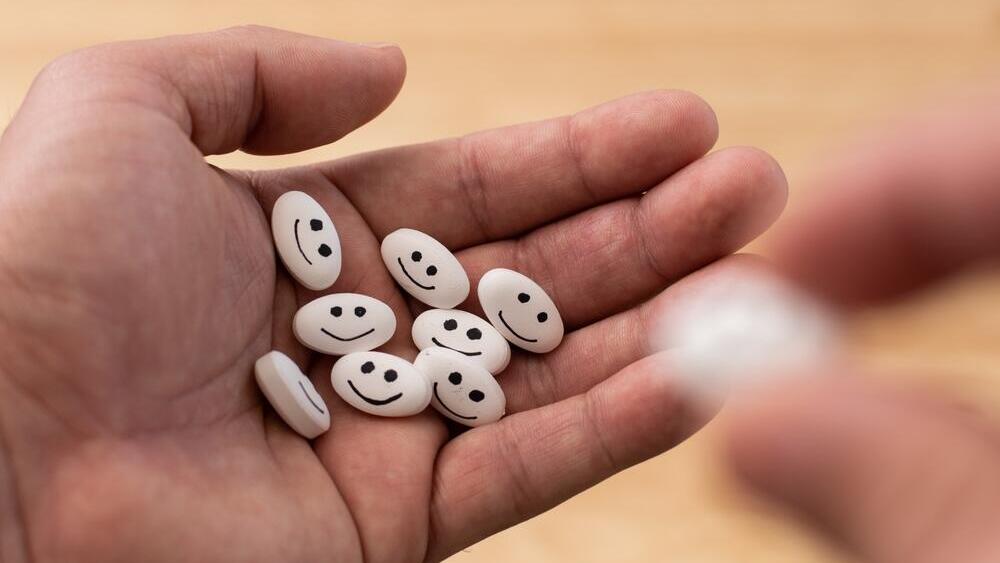In an era when depression and anxiety are described as global epidemics, SSRIs — selective serotonin reuptake inhibitors — have transformed psychiatry, helping millions recover and even saving lives. Yet alongside their proven benefits, awareness is growing of a lesser-known, often silenced side effect: sexual dysfunction that may persist long after patients stop taking the medication.
“I was on Cipralex for two and a half months,” wrote one man in an online support group. “While on it, I had almost no libido, trouble maintaining an erection, and less physical pleasure — even kisses felt dull. Months after stopping, some of that feeling returned, but not all of it. I later found out that for some people, the effects never go away. If I’d known this, I might have made a different decision — it’s wrong that psychiatrists don’t warn patients.”
3 View gallery


Sexual dysfunction that may persist long after patients stop taking the medication
(Photo: Shutterstock)
His post struck a nerve among thousands of patients — men and women — who take SSRIs. The lingering condition has a name: PSSD, or Post-SSRI Sexual Dysfunction. It describes sexual side effects that continue even after stopping the drug, including loss of libido, decreased pleasure, difficulty with arousal or orgasm, and numbness in the genitals.
A recent study in Epidemiology and Psychiatric Sciences found that in some patients, sexual function does not return to baseline even months or years after discontinuation — raising uncomfortable questions within psychiatry. Experts are divided: is this real, or the result of psychological factors?
According to Dr. Oren Tene, head of the psychiatric department at Tel Aviv’s Ichilov Hospital and director of the Mentalix Center for Mental Health, sexual side effects during SSRI use are well documented.
“It’s a known phenomenon,” he says. “It’s almost a cruel trade-off — when serotonin levels rise and mood improves, sexual function often declines. Nearly all SSRIs do this, some more than others. It’s a class-wide effect.”
The symptoms, he explains, vary. “We commonly see reduced libido and delayed orgasm. Men may experience erectile issues, and women may experience decreased lubrication. Ironically, this particular side effect is sometimes used therapeutically — SSRIs are prescribed to men with premature ejaculation. But when the delay is excessive, it becomes frustrating for both partners.”
Dr. Tene adds that anxiety and depression themselves can suppress sexual function: “I tell patients that depression and good sex don’t go hand in hand. Sometimes the net effect of treatment is still positive.”
While side effects during treatment are well established, what happens after stopping the medication remains contentious. “That’s where it gets controversial,” says Dr. Tene. “Does sexual dysfunction sometimes persist afterward? Literature increasingly suggests yes. It’s hard to study, but it seems to happen to a subset of patients, though we don’t know how many.”
Science has yet to pinpoint a cause. “Physiologically, there’s no clear explanation,” he says. “When the drug is in the system, we know serotonin interacts with dopamine and norepinephrine. But after discontinuation, theoretically, there’s no reason for ongoing symptoms. We just don’t know.”
Underreporting is also likely, he adds. “Patients don’t always connect the dots. The most common complaints are reduced sensation, less pleasure, erectile issues, or delayed ejaculation. Many describe feeling ‘numb.’ Men seem to report it more, but women often describe more severe symptoms.”
Even within the medical community, there’s disagreement. “Some doctors argue patients misremember that their sexual function didn’t change much from before. The topic is difficult to study, and documenting every possible side effect is impossible.”
Dr. Tene stresses caution: “These are life-saving medications. Listing every rare or disputed side effect could scare patients away from treatment. On the other hand, patients deserve informed consent. It’s a delicate balance.”
What can be done when symptoms persist? “Unfortunately, we don’t have a specific treatment,” says Dr. Tene. “For most, it resolves — sometimes after weeks or months, occasionally longer. But there’s no guaranteed fix.”
Yifat Mekler, a sexologist and couples therapist at Rambam Health Care Campus, agrees that the condition is real but often temporary. “In most cases, symptoms fade within weeks to two months. Stopping antidepressants abruptly can prolong recovery — it shocks the nervous system and delays adjustment,” she explains.
Even when the body recovers, the mind can keep the problem alive. “The physical and psychological aspects are intertwined,” Mekler says. “Men often develop performance anxiety — they focus on what might go wrong instead of being present in the moment. That stress raises cortisol and adrenaline, which suppresses the parasympathetic response needed for arousal. It becomes a vicious cycle.”
Therapeutic support, she adds, is crucial. “Sex therapy helps men shift focus away from performance and back to sensuality and connection. Couples can explore intimacy that isn’t centered on intercourse. If anxiety persists, psychiatric follow-up or temporary use of medications like Viagra can help.”
The discussion around PSSD has exposed a painful dilemma for many patients: the fear of losing sexual vitality versus the desperation to escape depression and anxiety. The result is growing mistrust toward psychiatry — and confusion about what patients are told, and what remains unsaid.
But psychiatrists warn that public fear can have deadly consequences. “We encourage people who need these drugs to take them,” says Dr. Tene. “SSRIs can truly save lives and alter the course of illness.”
He cautions against alarmism. “When public discourse demonizes these medications, it drives people away from help. The vast majority of SSRI users experience mild or temporary side effects, and overall, the benefit far outweighs the risk.”
His message is one of balance. “Every medication has side effects. The key is weighing benefits against risks. SSRIs are among the safest and most effective treatments we have for depression and anxiety. They’ve improved — and saved — millions of lives. Awareness is important, but so is perspective.”


